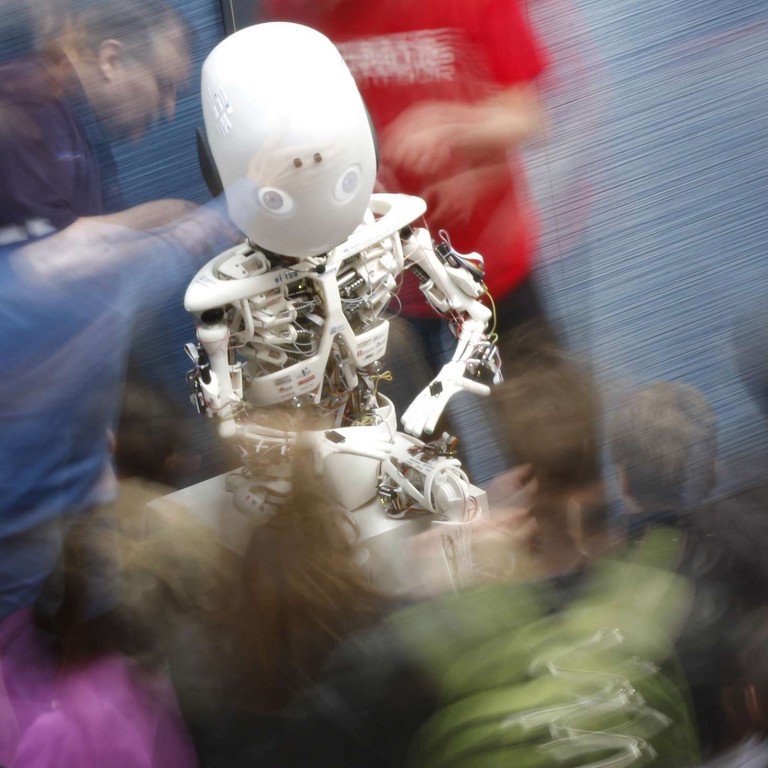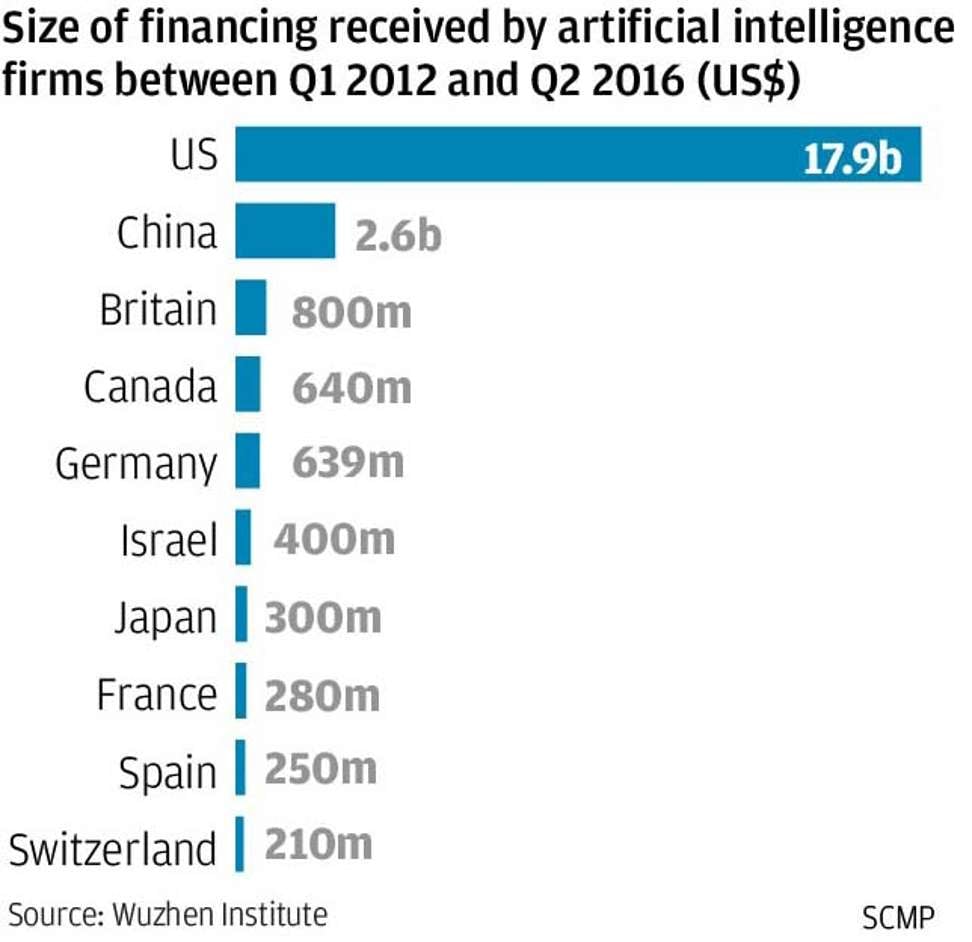
New | The future is here: China sounds a clarion call on AI funding, policies to surpass US
Artificial intelligence has made its way on to the agenda of the government’s annual political show in Beijing, urged on by the country’s business and technology elites
China’s government is preparing for a war of sorts with the United States to claim the vantage point to define the technological trend for the next generation.
At the annual meeting of China’s parliament this week, the usual Communist Party agenda of economic growth, social welfare, jobs, health care and pension made way for an unusual addition: a clarion call by some of China’s most influential business and technology leaders for the government to set policies to define what they consider the Next Big Thing.
They include the founder of the largest Chinese internet search engine Baidu, the owner of smartphone maker Xiaomi, and the founder of Geely Automobile, which bought Volvo.
They are tabling motions and proposals for the government to take the lead in getting Chinese enterprises to collaborate on artificial intelligence (AI) research, and facilitate the industrialising of the technology.
AI made its way into Premier Li Keqiang’s March 5 work report, a signal that it has caught the attention of China’s top decision makers. Still, that brief mention is inadequate to catapult China to worldwide leadership.
Baidu’s founder Robin Li, whose search engine is competing with Uber Technologies and Alphabet’s Waymo to commercialise self-driving technology, is urging China’s government to craft a national-level regulatory framework and offer incentives to facilitate the adoption of AI in a wide range of industries.
“The development of AI has come to a tipping point,” said Li, a delegate of the Chinese People’s Political Consultative Conference (CPPCC), a political advisory body. “Whichever country makes a breakthrough in application can have a bigger chance to lead the world in AI technology. China’s AI prowess is certainly the second best in the world , if not the best.”

Both are urging the government to make the development of AI a national strategy, similar to what Beijing has done with “Made-in-China 2025”, a 10-year action plan to shed the country’s image as a cheap manufacturer.
“Unlike the previous technology revolutions, AI is the once-in-many-decades chance for China to lead the charge in technology,” said Lei, a lawmaker at the National People’s Congress (NPC), the parliament.
Heavy investments poured into cloud computing and big data over the past few years and China’s huge talent pool in mathematics undergird the country’s ability to close its gap and surpass the US in AI, Lei said.
Baidu’s AI-powered facial recognition technology, which beat humans, was recently listed as the “10 Breakthrough Technologies” of 2017 by MIT Technology Review.
China has also overtaken the US, leading the world in publishing academic journal articles on deep learning, a sub-discipline of AI research.
Donald Trump’s restrictive immigration policy is giving China an “unprecedented” opportunity to attract top talent from overseas to develop AI, said Liu. IFlyTek’s voice technology produced real-time subtitles of the Chinese premier’s speech at the NPC meeting.
“About one fourth of the US’ high-tech firms are founded by immigrants, who are upset by Trump’s policies,” said Liu, who’s also an NPC delegate. “It’s the perfect time for China to offer an olive branch to attract global talent on AI.”
Li also urged the Chinese government to offer more green cards to attract Silicon Valley talent, who may be put off by Trump’s policies.
AI has captured media attention, and attracted the most investments by entrepreneurs and venture capitalists since Google’s AlphaGo beat the Go world champion Lee Sedol in early 2016.

But a top-down nationwide action plan on AI is still needed for better collaboration among enterprises as a number of national labs, each responsible for the research of one subdiscipline of AI, are scattered across China, said industry insiders.
The Obama administration released in October 2016 a national strategy on AI, laying out a road map for federal funding for AI research and development.
Entrepreneurs are hoping that the government can allow them access to more data to spur the development of AI, as many see the huge amount of data produced by China’s 1.4 billion population a natural advantage to develop the technology.
In the commercialisation of autonomous cars, an industry that is powered by AI, China needs to open its “high-definition mapping market to more companies, or risk being left behind by competitors in the rest of the world”, said Geely’s founder Li Shufu.
Home to the world’s biggest vehicle market, China has set a goal for up to 20 per cent of cars to be highly autonomous by 2025, and for 10 per cent of cars to be fully self-driving by 2030, goals that are expected to take jobs away from professional drivers.
Lei predicted that more than 50 per cent of people will be made jobless by AI as the technology is penetrating people’s daily lives at a speed faster than expected.
For example, iFlyTek’s voice intelligence has already make stenographers redundant, and is expected to take more jobs away from interpreters, as its machines can translate a dozen languages, including English, Japanese and Korean into Chinese.
“Many jobs will be taken by AI and the fortunes of society will be controlled by a small number of AI giants,” Liu said. “The government needs to take action now to think about how to better distribute wealth and how to prepare people to move into the AI era. Otherwise it will be too late.”




